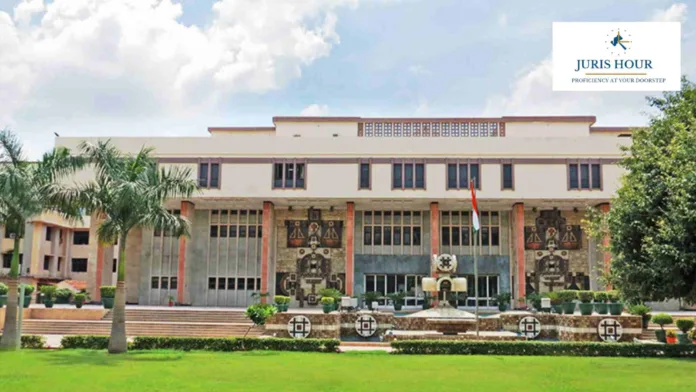The Delhi High Court has held that there is zero tolerance for corruption and the Central Bureau of Investigation (CBI) cannot be rendered helpless under Section 17A Prevention of Corruption Act which requires CBI to obtain prior sanction.
The bench of Ms. Justice Shalinder Kaur while refusing to grant the anticiapatory bail to the Senior Section Engineer of the Railways allegedly involved in corruption noted that the manner in which the petitioner, despite having knowledge of the raid being conducted at his premises, evaded participation in the investigation and rather gave instructions to prevent the raid and for disappearance of evidence, and also operated his bank locker the very next day, shows the petitioner’s mala fides. Undisputedly, the son of the petitioner despite being served a notice, did not handover the key of the bank locker to the CBI. The details of other intercepted calls prima facie also points towards the involvement of the petitioner.
“Undoubtedly, allegations of corruption must be dealt with zero tolerance. When, during a trap proceeding, further information is received about the offence/offenders, the CBI cannot be rendered helpless in proceeding with further investigations,” the bench remarked.
The petitioner, Arun Jindal, SSE (In-charge, Tender Section), Electrical-G Branch was engaged in corrupt and unlawful practices in the matter of issuance of work orders and clearance of bills pertaining to private contractors, in lieu of illegal gratification.
The prosecution has alleged that the petitioner was actively involved in the collection of bribes from various railway contractors, both for himself and on behalf of Saket Chand Srivastava, Sr. DEE, in exchange for awarding work orders and facilitating clearance of bills.
Acting upon an information received from a source, the Central Bureau of Investigation (CBI) that Saket Chand Srivastava, Tapendra Singh Gurjar, and Gautam Chawla, would be meeting at Sandoz Restaurant, Connaught Place, New Delhi for a bribe transaction linked to railway supply contracts awarded to M/s Vatsal Infotech Pvt. Ltd., represented by Gautam Chawla. The CBI monitored the individuals, when Gautam Chawla was observed handing over a sum of Rs. 7 lakhs in cash to Saket Chand Srivastava and Tapendra Singh Gurjar. Upon witnessing the exchange of money, the CBI team moved in promptly and apprehended all three individuals at the scene.
The petitioner contended that prior to registration of the FIR i.e. during the Enquiry sans the sanction under Section 17A of the PC Act, which mandatorily requires prior sanction for the purpose of Enquiry or Investigation with respect to a public servant. However, the petitioner was not arrested pursuant to a trap laid by the CBI.
The department contended that during the search operation conducted at the residential premises of the petitioner, he made an attempt to cause the disappearance of evidence. When the CBI team arrived at the petitioner’s residence, the petitioner telephonically instructed his brother to prevent the CBI, at any cost, from conducting the search of the premises and if required, to remove the “things”.
The court held that the nature and gravity of the alleged offence, prima facie, show that the allegation against the petitioner cannot be lightly brushed aside at this stage.
Case Details
Case Title: ARUN KUMAR JINDAL Versus CBI
Case No.: BAIL APPLN. 1705/2025, CRL.M.A. 13567/2025
Date: 09.05.2025
Counsel For Petitioner: Nandita Rao, Senior Advocate
Counsel For Respondent: Ravi Sharma, SSP

